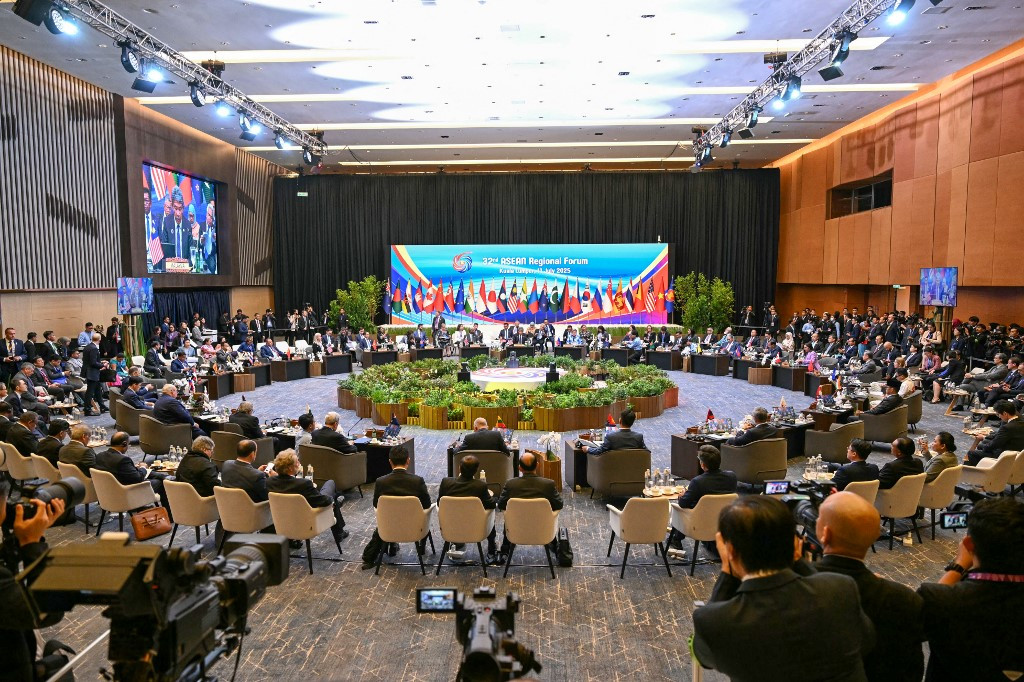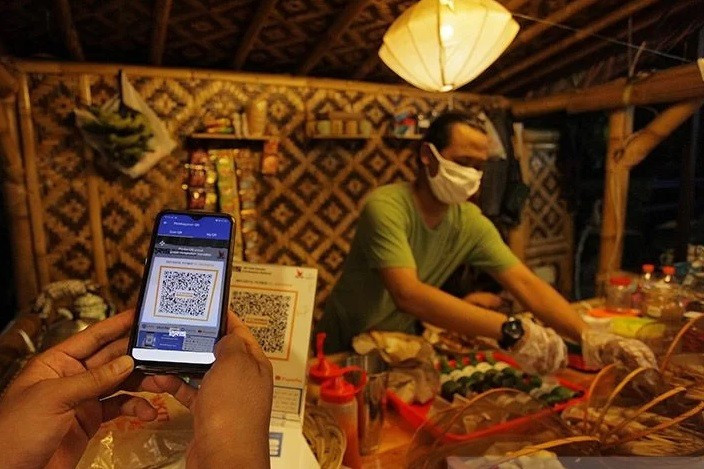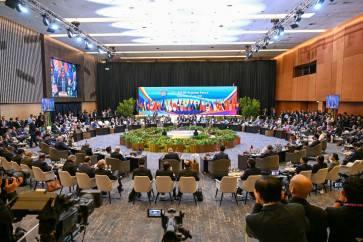Popular Reads
Top Results
Can't find what you're looking for?
View all search resultsPopular Reads
Top Results
Can't find what you're looking for?
View all search resultsSecuring the ASEAN economy in an oversecuritized world
Daily conversation in ASEAN now revolves around how to walk a fine line between avoiding overdependence and co-optation by any major power for their own agenda.
Change text size
Gift Premium Articles
to Anyone
W
e are now in an era where economic interdependence is weaponized to serve national security and other non-economic objectives. The use of economic statecraft for geopolitical purposes, once largely confined to conventional and cold wars, now make regular headlines.
ASEAN cannot afford to let the region to uncontrollably become the economic battleground of major powers. In the age of geopolitical competition, greater consideration of security concerns is understandable. But ASEAN must carefully manage these geo-economic challenges without being entrapped into contributing to the spiral of over-securitization.
For major powers, security concerns generally revolve around strategic autonomy and global leadership competition. Economic overdependence on others, especially their geopolitical rivals, is perceived as an imminent threat. Other countries also have concerns over overdependence, but must balance this against being co-opted by any major power for their own security agenda.
Increasingly, major powers are pressuring other countries participating in the supply chains of their geostrategic rivals to limit their rival economies’ access to its critical technologies or materials. The recent introduction of restrictions on advanced critical technologies by the United States and on rare earth and its related technologies by China adds to the list of examples.
For ASEAN, where many of its members are export-oriented and integral part of the global supply chains, this trajectory is dangerous. The region’s daily conversation now revolves around how to walk a fine line between avoiding overdependence and co-optation by any major power for their own agenda.
The major powers’ escalation of such measures risks undermining the longstanding benefits of international cooperation, eroding interoperability, and disproportionately hurt emerging economies, outcomes that are an affront to ASEAN’s spirit of open and inclusive regionalism.
ASEAN must resist externally-driven securitization agendas to prevail over the economy. Without clear parameters, security considerations are bound to be misused. Without multilateral oversight, power can be applied ambiguously through various unilateral actions in the name of security. Instead, ASEAN should consider developing its own comprehensive approach to security, informed and shaped by the region’s shared challenges and priorities.



















